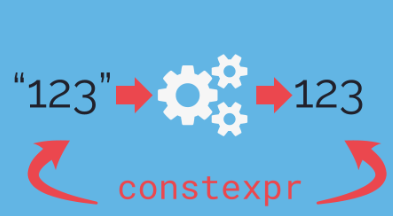SObjectizer Tales – 21. Performance, part 2--Marco Arena
 A new episode of the series about SObjectizer and message passing:
A new episode of the series about SObjectizer and message passing:
SObjectizer Tales – 21. Performance, part 2
by Marco Arena
From the article:
In this episode we continue our exploration of performance considerations within the actor model, with a specific focus on measuring service time.

 Thanks to the powerful
Thanks to the powerful  This article explores the concept of class invariants in C++ and their significance in maintaining code integrity and abstraction. It highlights the difference between struct and class definitions and discusses the role of class invariants in guaranteeing the correctness of class objects. The article also touches upon the trade-offs between strong and weak invariants and provides insights into when to define a new class with proper invariants.
This article explores the concept of class invariants in C++ and their significance in maintaining code integrity and abstraction. It highlights the difference between struct and class definitions and discusses the role of class invariants in guaranteeing the correctness of class objects. The article also touches upon the trade-offs between strong and weak invariants and provides insights into when to define a new class with proper invariants. A new episode of the series about SObjectizer and message passing:
A new episode of the series about SObjectizer and message passing: In this post, Victor talks about bringing compile times of the {fmt} library on par with the C standard I/O library (stdio).
In this post, Victor talks about bringing compile times of the {fmt} library on par with the C standard I/O library (stdio). In this software troubleshooting case, a customer experienced program crashes, and a detailed analysis of the code revealed several issues. The primary problem stemmed from lazy initialization of a widget list, leading to inconsistent vector states and potential crashes. Additionally, a multithreading issue was identified, highlighting the importance of thread-safety mechanisms in code that can be accessed concurrently.
In this software troubleshooting case, a customer experienced program crashes, and a detailed analysis of the code revealed several issues. The primary problem stemmed from lazy initialization of a widget list, leading to inconsistent vector states and potential crashes. Additionally, a multithreading issue was identified, highlighting the importance of thread-safety mechanisms in code that can be accessed concurrently. A new episode of the series about SObjectizer and message passing:
A new episode of the series about SObjectizer and message passing: We delve into how C++20 introduced changes to object comparisons, leading to unexpected behavior and the need for matching operator!= declarations.
We delve into how C++20 introduced changes to object comparisons, leading to unexpected behavior and the need for matching operator!= declarations. A new episode of the series about SObjectizer and message passing:
A new episode of the series about SObjectizer and message passing: